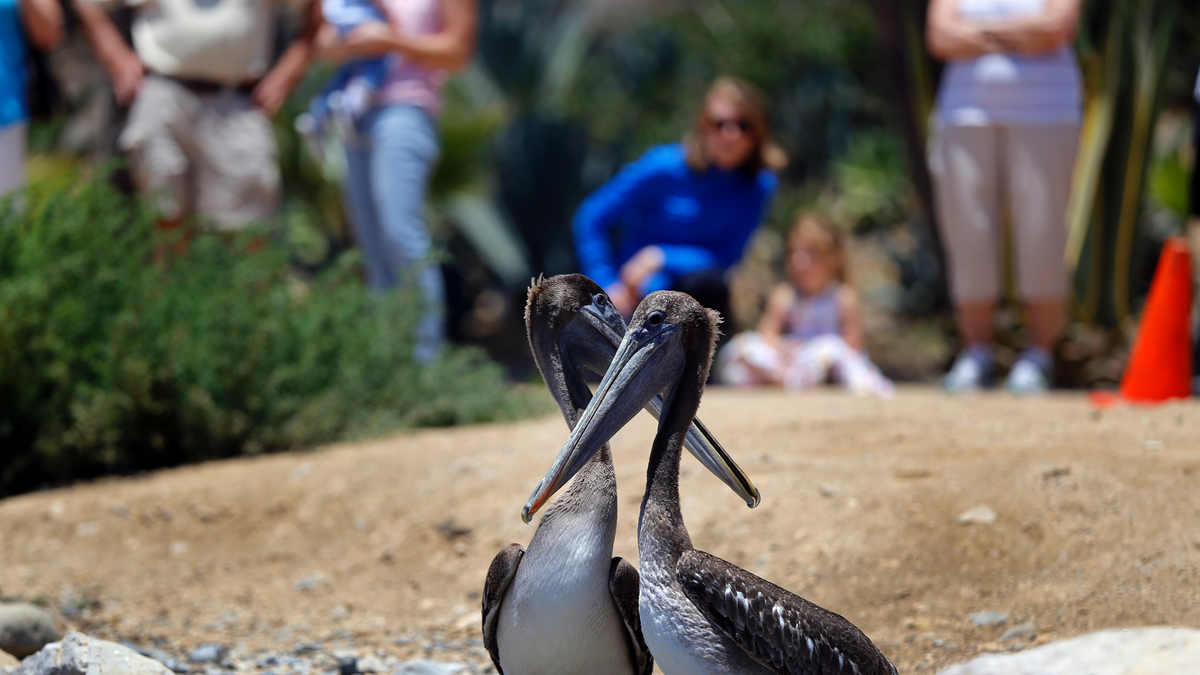
LOS ANGELES – Birds gotta fly, and to the delight of dozens of people gathered above a rock-strewn Southern California beach on Wednesday, that's exactly what a trio of brown pelicans did as soon their cages were opened.
The three were among 50 taken in by International Bird Rescue since April. More are expected to fly the coop in the weeks ahead.
Rescue officials say the birds, instantly recognizable with their long, pointy beaks, were emaciated, anemic and suffering from other ailments when they arrived at the group's aviaries.
Many were walking — not flying — and looking dazed and confused.
One bird released Wednesday was a hatchling, and Kylie Clatterbuck of International Bird Rescue said her organization gets a few every year. Those are the ones that pretty much haven't figured out how to survive on their own after leaving their mothers' nests.
What was surprising this year, she said, was finding several older birds as well.
Normally brown pelicans are mainstays at beaches and marinas where they dive-bomb for fish in shallow ocean waters.
This year they've been found walking around airport runways and strolling through front yards of homes away from the beach. Two even buzzed a recent graduation ceremony in Malibu, one of them landing among the startled graduates.
"Pelicans don't usually hang out in those areas so it could be a food source issue," said Clatterbuck, wildlife director of International Bird Rescue's Southern California operation.
Her group worries that rising ocean temperatures may be shrinking the birds' main food supply, which is fish.
In the meantime, the group continues to rescue and rehabilitate the pelicans it finds.
"We still have many more in care, they just need more time for them to recuperate," Clatterbuck said immediately after Wednesday's release.
One of the birds took off immediately. The other two hesitated until they saw a flock flying overhead and decided to join the group.
"Every bird does what it wants," Clatterbuck said with a chuckle.









































